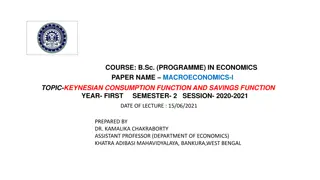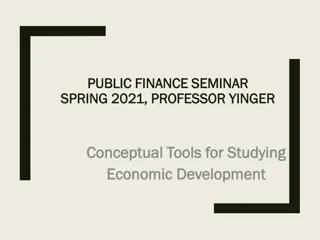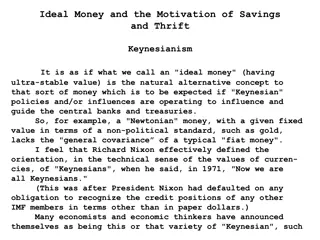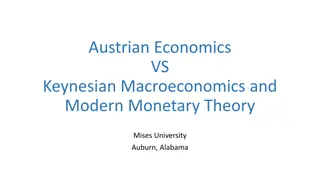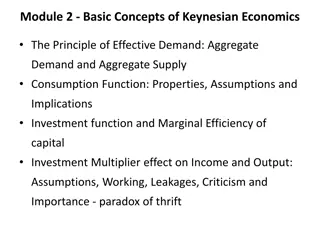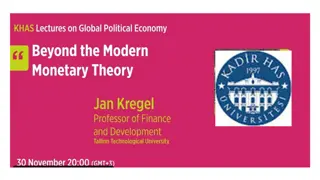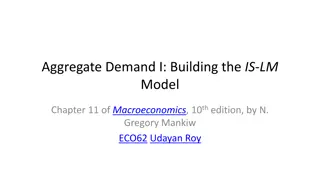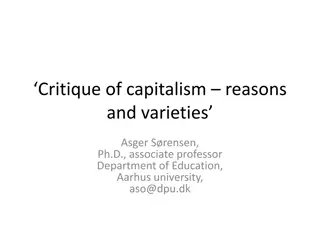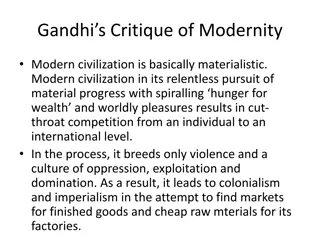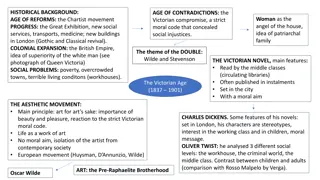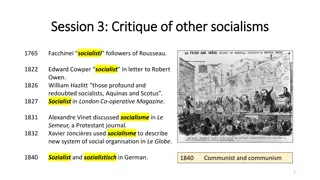Critique of Keynesian Economic Theory
Keynesian economic theory, though groundbreaking, faces several limitations. These include contradictions between equilibrium and unemployment, neglect of long-term analysis, assumptions of perfect competition and a closed economy, lack of generality, and a static rather than dynamic focus. Critics argue that Keynes' analysis may not be universally applicable, particularly to less developed countries.
Download Presentation

Please find below an Image/Link to download the presentation.
The content on the website is provided AS IS for your information and personal use only. It may not be sold, licensed, or shared on other websites without obtaining consent from the author. Download presentation by click this link. If you encounter any issues during the download, it is possible that the publisher has removed the file from their server.
E N D
Presentation Transcript
LIMITATIONS OF KEYNES THEORY Keynes theory income was greatly admired as a major break-through in economics. Yet it has been subjected to severe criticism by various writers. The main limitations economics in general and his theory of income and employment in particular are stated below: of employment and the aggregative of Keynesian
1. Contradiction between equilibrium and unemployment: Keynes asserted in his General Theory that greater probability was that the economic system could be in equilibrium in a less than full employment (or unemployment) situation. According to critics, underemployment and equilibrium are contradictory. If there is unemployment, cannot exist. equilibrium
2. Neglect of long period: Keynes dismissed the long period on account of uncertainty associated with it. He was greatly pre-occupied with the short run period. According to critics, analysis should be capable of analysing the economic problem context of short and long periods. the economic both in the
3. Assumption of perfect competition: Like assumed competitive market. Perfect competition, completely market situation. classical the writers, existence Keynes of too perfectly however, and is a unrealistic imaginary
4. Assumption of closed economy: Keynes General Theory was built in a closed two-sector economic system. It implies that the aggregate demand is not affected by variations in exports and imports and international capital flows. But this is not true. In actual reality, the economic system is open.
5. Not dynamic: Since Keynes introduced expectations in his analysis, it was claimed that his theory was dynamic. In fact, Keynes approach was concerned with shifting equilibrium or comparative statics. The comparative statics is a special case of static theory. It is not the dynamic analysis proper.
6. Lack of generality: It was claimed that Keynes gave a general theory employment. In contrast, the classical theory was applicable situation of full employment. The critics have objection to this Keynes analysis is applicable to the conditions of advanced countries. It is not relevant to less developed countries. of income and only in the taken Keynesian a serious claim.
7. Excessively aggregative: Keynes laid emphasis upon the macro or aggregative variables demand, aggregate income, consumption, investment and saving. In this analysis, the micro quantities were completely ignored. The excessive emphasis upon aggregates resulted in the neglect of particular units or the composition of those aggregates. like supply, aggregate national
THANK THANK YOU YOU


